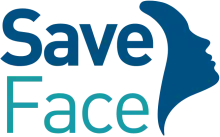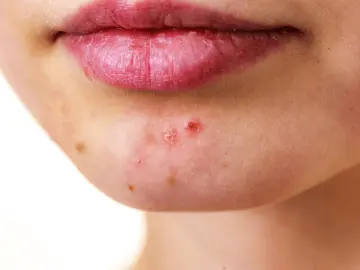What is acne?
Acne is an extremely common skin condition that affects many people at some point or another in their lives. It causes a wide variety of spots to develop on the skin, ranging from superficial blackheads and whiteheads to severe, inflamed pus-filled cysts which can be painful to touch.
While those at the former end of the scale can be treated relatively easily, acute acne can be long-lasting and lead to significant scarring.
Most commonly, acne develops on the face, the back and the chest
What causes acne?
Acne is caused when hair follicles become blocked by excessive and thicker sebum produced by sebaceous glands. This sebum mixes with dead skin cells and forms a plug in the follicle, creating whiteheads and blackheads.
When these plugged follicles become infected by the usually harmless bacteria that lives on the skin, papules, pustules, nodules and cysts are formed.
Can you prevent acne?
Acne is not caused by a poor diet or poor hygiene, but it can be triggered by hormonal changes, genetic predisposition, certain medications, smoking, and regularly wearing items that place pressure on affected areas.
Whilst there is no surefire way to prevent it, you can reduce the severity of breakouts by keeping your skin clean (but not over-washing it) and using a non-comedogenic moisturiser to address dryness. For some, a change in skin care regime or diet can make all the difference.
Treating acne with over-the-counter and prescription products
There are many over-the-counter products can be helpful for mild acne, as well as stronger prescription products that you can get from your GP.
Many over-the-counter products contain an ingredient called benzoyl peroxide which prevents the clogging of pores. Products that contain this can take up to three months to work, but if they’ve not helped control your acne after time then seek advice from your GP.
Prescription medications that can be used to treat acne include:
- Topical retinoids
- Topical antibiotics
- Azelaic acid
- Benzoyl peroxide
- Antibiotic tablets
- Isotetinoin tablets.
- The combined oral contraceptive pill is also effective at treating acne in women.
How to get rid of spots with non-surgical cosmetic procedures
If prescription medication fails to work or has unpleasant side-effects, there are procedures that can help clear stubborn acne.
Laser Therapy
The bacteria that causes more severe acne can be killed by exposing the skin to different wavelengths of light. Laser therapy will also shrink sebaceous glands which will decrease oil production.
Chemical Peels
Chemical peels can help control acne when used in conjunction with other acne treatments. They involve the application of mild acids to the skin to help remove dead skin cells and unclog pores. They can also generate new skin growth.
As well as non-surgical procedures to treat acne, there are also those available that can help with acne scarring. For more information please see our recent blog post.
Save Face
If you are interested in either of the above procedures, be sure to read our treatment information pages before you start looking for treatment.
Remember, non-surgical cosmetic procedures are not regulated by law in the UK, which means that technically anyone can set up as a non-surgical cosmetic practitioner.


